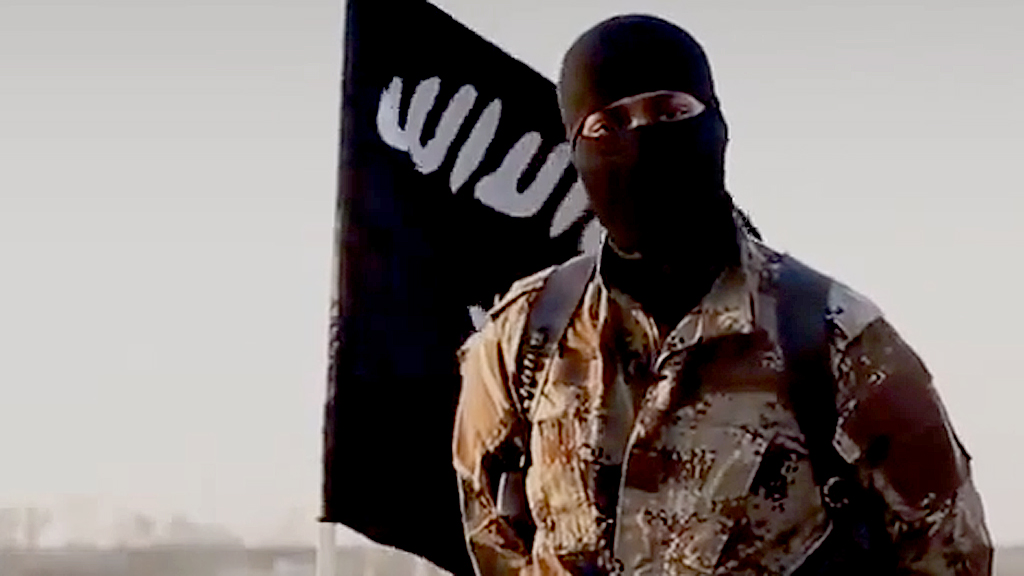Depressed and alone: the mental health of radical extremists
Islamic State fighters often present themselves on social media as a fearless band of brothers, but a new report finds radicalised jihadis are more likely to be anxious, depressed and lonely.

Above: still from recent Islamic State video
The report, by Queen Mary University in London, found those at risk of radicalisation – such as those who have left the UK to fight with Islamic State in Iraq and Syria – are more likely to have depression and be socially isolated than other people with similar backgrounds.
Islamic State propaganda videos have previously claimed jihad is a “cure for depression”, a sign perhaps that the sophisticated social media operation is aware of the audience it is targeting.
We must change this approach and stop waiting for terrorism to happen before acting. Kamaldeep Bhui, Queen Mary University
The survey of “over 600 men and women of Pakistani, Bangladeshi and Muslim heritage in London and Bradford, aged 18-45” also found those who are more likely to be radicalised are less likely to be politically engaged.
Lessons
By contrast, the research found those who are more resistant to radicalisation are likely to be migrants who were not born in the UK, have a higher number of friends and family, and be in poor physical health.

Lessons for the UK government could be taken from the research, the report’s lead author suggested, as it could help pinpoint those who could be radicalised earlier.
Kamaldeep Bhui, professor of cultural psychiatry and epidemiology at Queen Mary University, said: “As a nation, we spend a great deal of time, effort and money on counter-terrorism – but virtually no attention is given to preventing radicalisation before it has a chance to take hold.
We believe strongly in a public health approach, where those at risk of radicalisation are identified and helped. Kamaldeep Bhui
“We must change this approach and stop waiting for terrorism to happen before acting. The violence we’re witnessing in Syria and Iraq are devastating examples of this – whereby seemingly ordinary British citizens have become radicalised enough to leave their lives in the UK and commit themselves to a hopeless future, and in some cases, commit atrocities against innocent people.
“We believe strongly in a public health approach, where those at risk of radicalisation are identified and helped, rather than focussing solely on rare and unpredictable terrorist events after they’ve happened.”
Islam for dummies
Another insight into the mindset of radicalised British jihadis came in July in the court case of Yusuf Sarwar and Mohammed Ahmed.
Sarwar and Mohammed, who pleaded guilty to terrorism offences, had traveled to Syria to train and fight alongside Kataib Al Muhajireen, a extremist jihadi group.
The books the pair had brought before heading to fight jihad? Islam for Dummies and The Koran for Dummies.
An example of “dumb”, but incredibly tragic, behaviour was also found in a recent UN report. A group of Islamic State fighters entered a village and started executing people thinking they were from the minority Yazidi sect.
Because only one of the jihadi fighters spoke Arabic, 15 villagers died before they were able to communicate to the militants that they were, in fact, Sunni Muslims – the same faith as Islamic State.
Popular opinion
Researchers asked participants in the Queen Mary research about their sympathies or condemnation towards 16 terrorist actions, such as the use of suicide bombers, with those showing greater sympathy towards violent acts being deemed to be more vulnerable to radicalisation.
A surprise finding from the research was that those with low levels of social capital – satisfaction with where you live, trust in your neighbours – were generally found to be more resistant to radicalisation.
Contrary to popular views about radicalisation, issues like unemployment, educational achievements, discrimination, and stressful life events did not correlate with greater sympathies for terrorism.
Around 500 Britons have head to Syria to fight with Islamic State militants, British Prime Minister David Cameron said, as he pledged support for an international coalition fighting the extremist jihadi group on Wednesday.
And it is not just young men who make up this group – footage obtained by France 24, secretly shot by a female student in the Islamic State Syrian stronghold of Raqqa, shows French women who have moved to the city (see video, below).